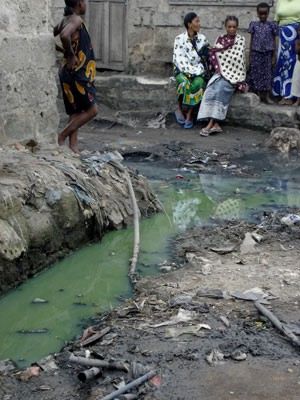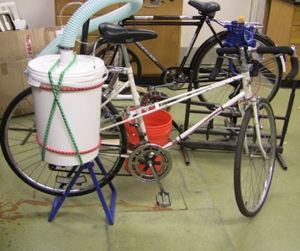|
Tanzania Technology | Health Pedal power may clean up Tanzania slum
According to MPhil graduate Nate Sharpe, "pedal power may hold the answer to cheap and efficient sewage removal in some of the world's poorest slums." The Cambridge University researcher hopes his low-tech solution now can be taken into large-scale production.
"A lot of the issues currently plaguing pit emptying services stem from the sheer volume of sludge that has to be transported. If smaller amounts could be moved more often, it becomes easy to transport – even on the back of a bicycle." "The idea has so many social, health and economic benefits," he adds. "An important aspect of the design is that it will be on a par with manual desludging technologies in terms of capital cost." Mr Sharpe developed the idea for the bike while working on his MPhil at Cambridge (UK), working with Dr Heather Cruickshank. Currently working at MIT in the US, Mr Sharpe has combined his efforts with the team from Sanergy who are developing low cost latrines using a franchise model where waste is collected on a daily basis. They hope the waste produced can be used in bio-digesters for heating and electricity production. "Few if any of the previous solutions take into account the economic, social and geographical constraints found in slum areas," Mr Sharpe holds. "The prevalence of people living on less than US$ 2 a day means they live in tightly packed, unplanned settlements." "The pump itself costs less than US$ 100, less than 10 percent of the next cheapest alternative," he adds. "Sometimes, solutions lie not in the development of new technology, but in the creation of a new business angle that works within the local community," Mr Sharpe concludes. By staff writer © afrol News - Create an e-mail alert for Tanzania news - Create an e-mail alert for Technology news - Create an e-mail alert for Health news
On the Afrol News front page now
|
front page
| news
| countries
| archive
| currencies
| news alerts login
| about afrol News
| contact
| advertise
| español
©
afrol News.
Reproducing or buying afrol News' articles.
You can contact us at mail@afrol.com









